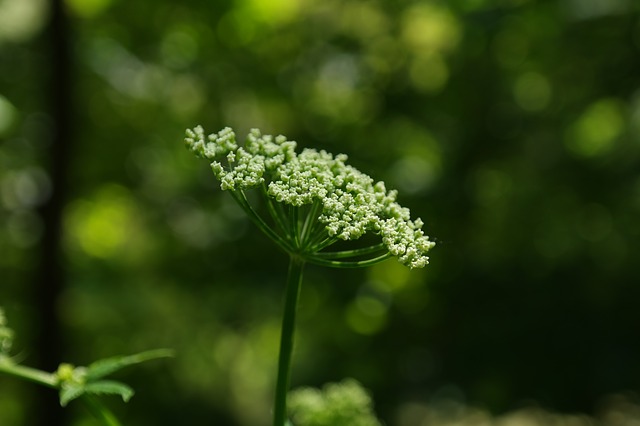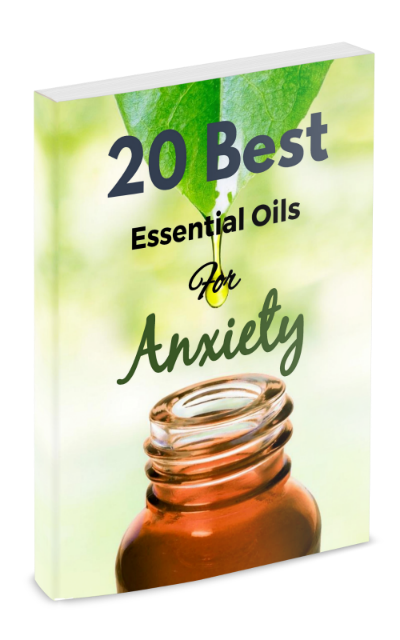Angelica Essential Oil has a strong spicy and pepper-like fragrance with an earthy, herbaceous character. Angelica Oil is good for rebuilding strength, increasing stamina, and stimulating alertness and higher energy.
Angelica oil is derived from the angelica plant, Angelica archangelica. Angelica, also known as wild celery, is of unclear origins. It is often found in northern European countries including Russia, Finland and Sweden.
Angelica can grow up to eight-feet tall. It produces small leaflets with finely serrated edges. Angelica’s flowers are small, green or yellow, and grouped into larger umbels which contain pale yellow fruits.
While almost all parts of the angelica plant are useful, the essential oil of angelica is derived from its root. The usual process of creating angelica root essential oil generally involves steam distillation.

Angelica Essential Oil for the Mind:
When used in moderation, angelica root essential oil has a grounding and relaxing effect on the mind. It boosts mental strength, so use it in times of increased stress and anxiety. Being an essential oil with both relaxing and stimulating effects, the essential oil of angelica root can also increase alertness.
Angelica Essential Oil Helps Relieve Stress Caused By:
- Emotional trauma
- Fatigue or exhaustion
- General tiredness
Blending Angelica Essential Oil for Additional Causes of Stress:
- Clary Sage and Roman Chamomile: When feeling weak and unmotivated
- Chamomile: Over sensitive and frustrated
- Cedarwood and lavender: Emotional exhaustion
- Lemon and Mandarin: Overburdened with decisions and obstacles
Angelica Essential Oil for the Body:
Angelica essential oil can be beneficial for the body in several ways. It has an anti-spasmodic effect, and lends itself to treatment of all kinds of spasm and cramps, including stomach and muscle cramps.
The essential oil of angelica can act as a stimulant. It stimulates circulation, excretion, and secretion, and acts as a diuretic and a diaphoretic. This is why it is often used for toxin removal. It can also help regulate the menstrual cycle.
Angelica essential oil is also an expectorant. It helps remove phlegm and can clear air passages. It can also help reduce fevers.
Angelica in Ancient History
The plants in the Angelica genus have a long history of use in traditional medicine. Outside of Europe, the best known is Angelica sinensis, better known by its Chinese name “dong quai.” Angelica archangelica, the source of angelica essential oil, became popular in Europe sometimes during the tenth century.
Angelica in Modern History
In medieval Europe, Europeans used and revered angelica as a sweetener. Angelica root also had medicinal purposes. It was also known as the root of the Holy Ghost.
The seventeenth-century English botanist Nicolas Culpeper chronicled the popularity of angelica, and its many uses, in his book The Complete Herbal:
“In all epidemical diseases caused by Saturn, that is as good a preservative as grows: It resists poison, by defending and comforting the heart, blood, and spirits; it doth the like against the plague and all epidemical diseases…“
He continued describing the many benefits of angelica:
“The stalks or roots candied and eaten fasting, are good preservatives in time of infection; and at other times to warm and comfort a cold stomach.
The root also steeped in vinegar, and a little of that vinegar taken sometimes fasting, and [9] the root smelled unto, is good for the same purpose.
A water distilled from the root simply, as steeped in wine, and distilled in a glass, is much more effectual than the water of the leaves; and this water, drank two or three spoonfuls at a time, easeth all pains and torments coming of cold and wind; and a syrup of the stalks do the like.
It helps pains of the cholic, the stranguary and stoppage of the urine, procureth womens’ courses, and expelleth the after-birth, openeth the stoppings of the liver and spleen, and briefly easeth and discusseth all windiness and inward swellings.“
Angelica Essential Oil Cautions:
There are reasons to be cautious when using angelica essential oil. It is phototoxic, so avoid exposure to sunlight or UV light after using it.
Pregnant women and people suffering from diabetes should avoid this essential oil. The over-use of angelica essential oil can cause hyperactivity and restlessness.


